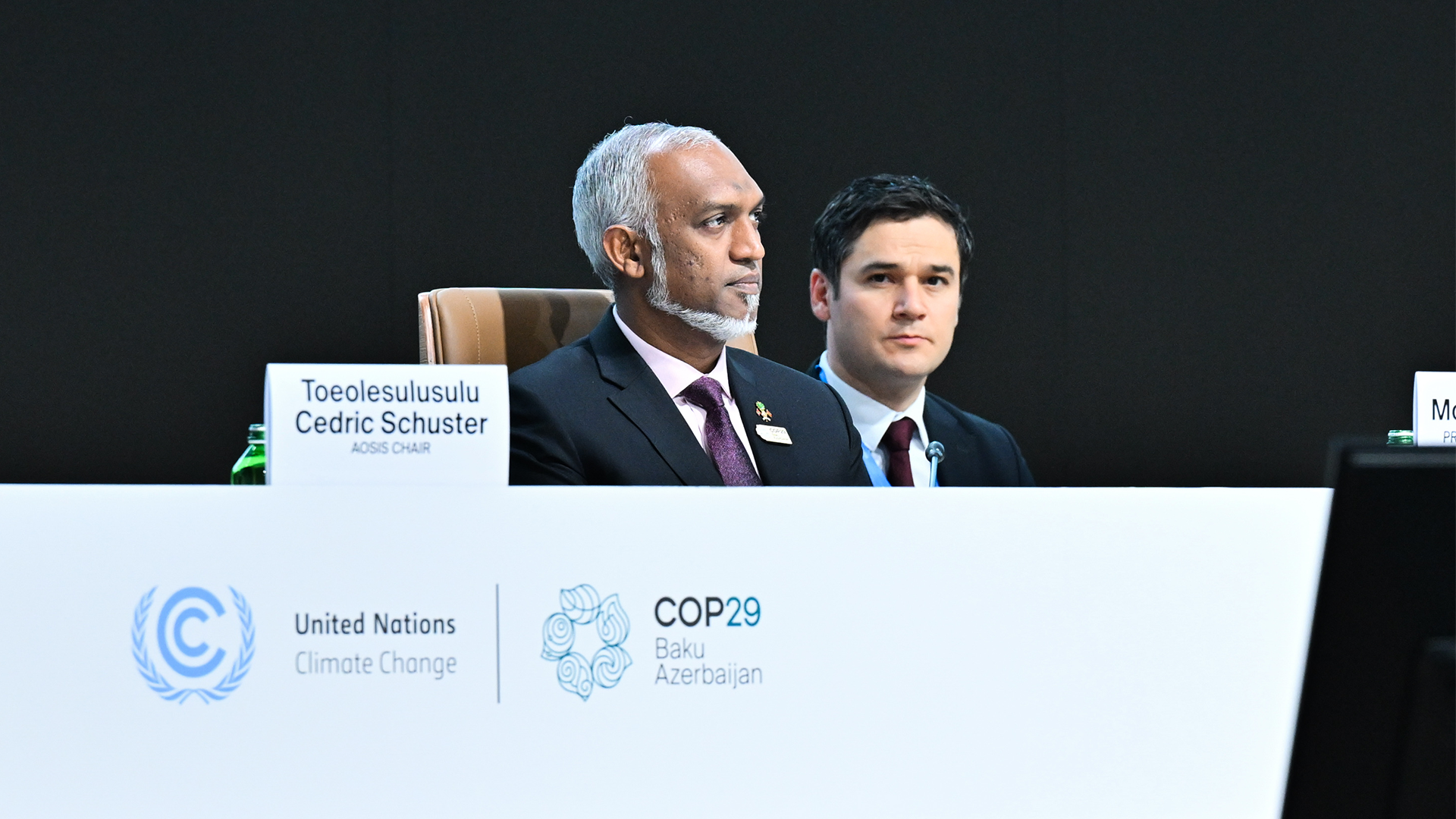LocalGovernment
President Muizzu Calls for Bold Financial Reforms to Aid Small Island Nations in Climate Battle
13/11/2024
Zain Rasheed


Share
In a powerful address at the Leader's Summit for Small Island Developing States (SIDS) during COP29, President Dr. Mohamed Muizzu of the Maldives delivered a clarion call for urgent financial transformation to safeguard vulnerable nations. With climate change battering the fragile economies of island nations, Muizzu underscored the immediate need for solidarity to evolve into concrete action.
“Climate change is not an abstraction for us; it is a relentless force eroding our hard-earned development gains,” President Muizzu stated, emphasizing the dire consequences already faced by countries like the Maldives.
1. Forging Unified Global Partnerships
In a bid to fortify island economies against climate impacts, President Muizzu proposed a unified response from the United Nations system, Multilateral Development Banks (MDBs), International Financial Institutions (IFIs), and private sector players. He called for these groups to come together to create comprehensive, risk-sharing partnerships that could make SIDS more attractive to investors.
“Partnerships are essential,” he declared. “Through joint efforts, we can mitigate risks and unlock the potential for investments that drive resilience and sustainable development.”
2. Innovative Financial Solutions: Debt Forgiveness for Resilience
Acknowledging the crushing weight of debt on SIDS, Muizzu called for a shift in how economic vulnerability is assessed. He proposed an innovative financial mechanism where debt forgiveness would be tied to achieving climate resilience milestones. This approach would not only provide immediate financial relief but also incentivize ongoing sustainability efforts.
“Our vulnerability cannot be captured by income measures alone,” Muizzu asserted. “We propose debt forgiveness linked to resilience efforts—a system where climate action becomes a metric for creditworthiness. Right now, more resources go toward debt repayment than toward meaningful climate action. This imbalance must be corrected.”
3. A Robust Goal for Climate Finance
President Muizzu stressed the importance of setting an ambitious and realistic new collective quantified goal for climate finance. Highlighting that the recent adoption of operational standards under Article 6.4 of the Paris Agreement was a step in the right direction, he pressed for progress on the international carbon market mechanism. This, he argued, should not merely be a system of trading credits but should act as a conduit for technology transfer and sustainable development, tailored especially for SIDS.
“COP29 must deliver on a robust financial framework that meets our genuine needs,” Muizzu said. “Our carbon markets should be more than trading mechanisms; they must be bridges for innovation and growth.”
Antigua and Barbuda Agenda for SIDS: A Roadmap and a Challenge
The President reflected on the adoption of the Antigua and Barbuda Agenda for SIDS (ABAS), a 10-year blueprint setting ambitious climate goals. Yet, without substantial financial backing, these aspirations remain unattainable. The current financial architecture, Muizzu argued, fails to accommodate the unique vulnerabilities of small island nations.
A Call to Action
President Muizzu’s speech resonated with urgency and determination, framing the struggle against climate change not as a distant threat but as an ongoing battle requiring immediate, bold solutions. His proposals, centered on partnership, innovation, and a comprehensive financial goal, set the stage for what many hope will be a transformative outcome at COP29.
In closing, President Muizzu’s words served as a poignant reminder: for the Maldives and other small island nations, climate change is not merely a policy challenge—it is a matter of survival. The world is now watching, and the call for transformation has never been clearer.
Comments
Related